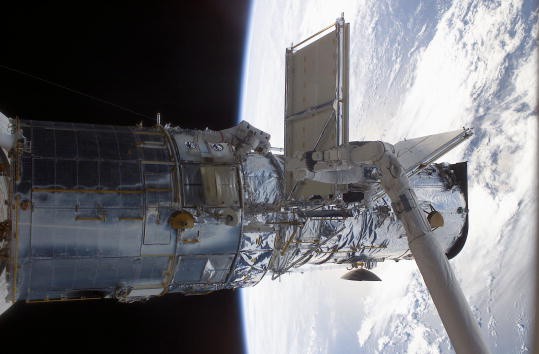Russian rocket debris forced NASA to delay its ISS spacewalk this December.

The international space agency said that a fragment of the Russian Fregat-SB upper stage would make a close approach to the orbiting laboratory.
NASA said that this detail was shown by their updated debris tracking data.
Because of this, the aerospace organization asked the crew to stop their spacewalk preparations.
Russian Rocket Debris Force NASA to Postpone Spacewalk
According to NASA's official blog post, NASA had to conduct a PDAM (Pre-Determined Debris Avoidance Maneuver).

On Wednesday, Dec. 21, at 8:42 a.m. EST, the space agency stuck to its plan, conducting the needed PDAM.
NASA used the Roscosmos Progress 81 thrusters for over 10 minutes, allowing the International Space Station an extra distance away from the rocket debris.
"Without the maneuver, it was estimated that the debris could have passed less than a quarter of a mile from the station," said NASA.
As of writing, the aerospace union hasn't provided the new date for the canceled ISS spacewalk. But you can expect further updates from NASA since the spacewalk is needed to deploy new solar arrays.
ISS Dodging Space Debris
Space debris is no longer new for the International Space Station.
For the past few years, NASA has conducted maneuvers in order to evade closing fragments of rockets, satellites, and other space objects.
Ever since the orbiting lab was completed, the space agency conducted over 32 maneuvers to keep the ISS safe from debris.
This means that NASA has conducted 1.5 PDAM each year since 2000.
If you want to learn more about the ISS maneuvers NASA, you can click this link.
As more and more rockets and satellites are launched into space, you can expect new PDAM activities from NASA.
Aside from spacewalks, NASA is also busy with its other out-of-this-world missions.
Previously, the NASA DART collision was discovered to create over two million pounds of debris.
We also reported that the NASA Ingenuity helicopter completed its 36th flight on Mars.
For more news updates about NASA and its upcoming space activities, keep your tabs open here at TechTimes.
Related Article : NASA's InSight Mars Lander May Have Just Captured its Last Picture After Going Silent





